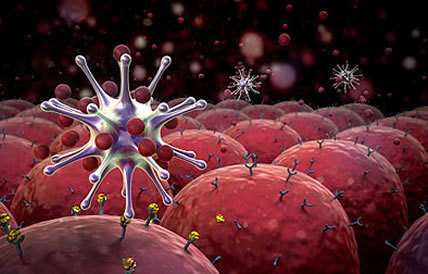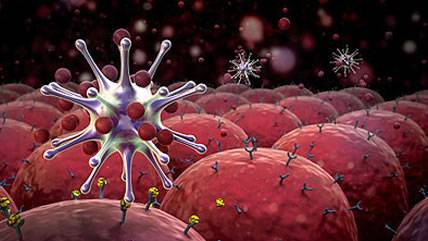Scientists Find That The Human Body Kills Spontaneous Cancers Daily
Source: preventdisease.com
It takes no more than 100 seconds for the body’s immune cells to identify and kill a cancer cell. Immune cells undergo ‘spontaneous’ changes on a daily basis that could lead to cancers if not for the diligent surveillance of our immune system, Melbourne scientists have found. 
A research team from the Walter and Eliza Hall Institute found that the immune system was responsible for eliminating potentially cancerous immune B cells in their early stages, before they developed into B-cell lymphomas (also known as non-Hodgkin’s lymphomas). The results of the study were published today in the journal Nature Medicine.
The immune system’s basic task is to recognize "self" (the body’s own cells) and "nonself" (an antigen--a virus, fungus, bacterium, or any piece of foreign tissue, as well as some toxins). To deal with nonself or antigens, the system manufactures specialized cells--white blood cells--to recognize infiltrators and eliminate them. We all come into the world with some innate immunity. As we interact with our environment, the immune system becomes more adept at protecting us. This is called acquired immunity.
Many mature white blood cells are highly specialized. The so-called T lymphocytes (T stands for thymus-derived) have various functions, among them switching on various aspects of the immune response, and then (equally important) switching them off. Another lymphocyte, the B cell, manufactures antibodies. A larger kind of white cell, the scavenger called the phagocyte (most notably the macrophage), eats up all sorts of debris in tissue and the bloodstream, and alerts certain T cells to the presence of antigens.
’’The T-cells basically detect the enemy and then throw grenades at the cancer cell until it blows up,’’ said immunologist Misty Jenkins from the Peter MacCallum Cancer Centre. T-cells are a type of white blood cell that are key to the body’s immune response. ormally when a T-cell kills the target, the only way you would know that the target has been hit or killed is when it physically starts to die.
However the B-cells bind to a specific antigen and antibodies against these antigens, thus performing the role of antigen-presenting cells (APCs), and to develop into memory B cells after activation by antigen interaction.
This immune surveillance accounts for what researchers at the institute call the ’surprising rarity’ of B-cell lymphomas in the population, given how often these spontaneous changes occur. The discovery could lead to the development of an early-warning test that identifies patients at high risk of developing B-cell lymphomas, enabling proactive treatment to prevent tumours from growing.
[...]
Read the full article at: preventdisease.com
READ: In breakthrough, patients’ immune systems attack cancer cells






















